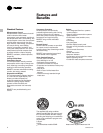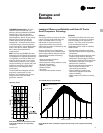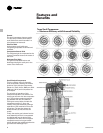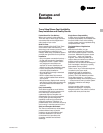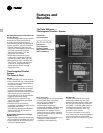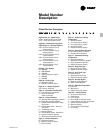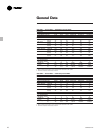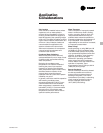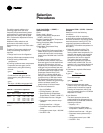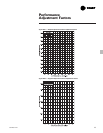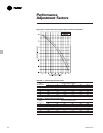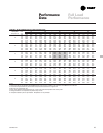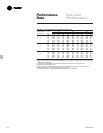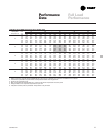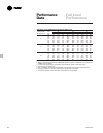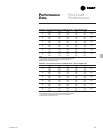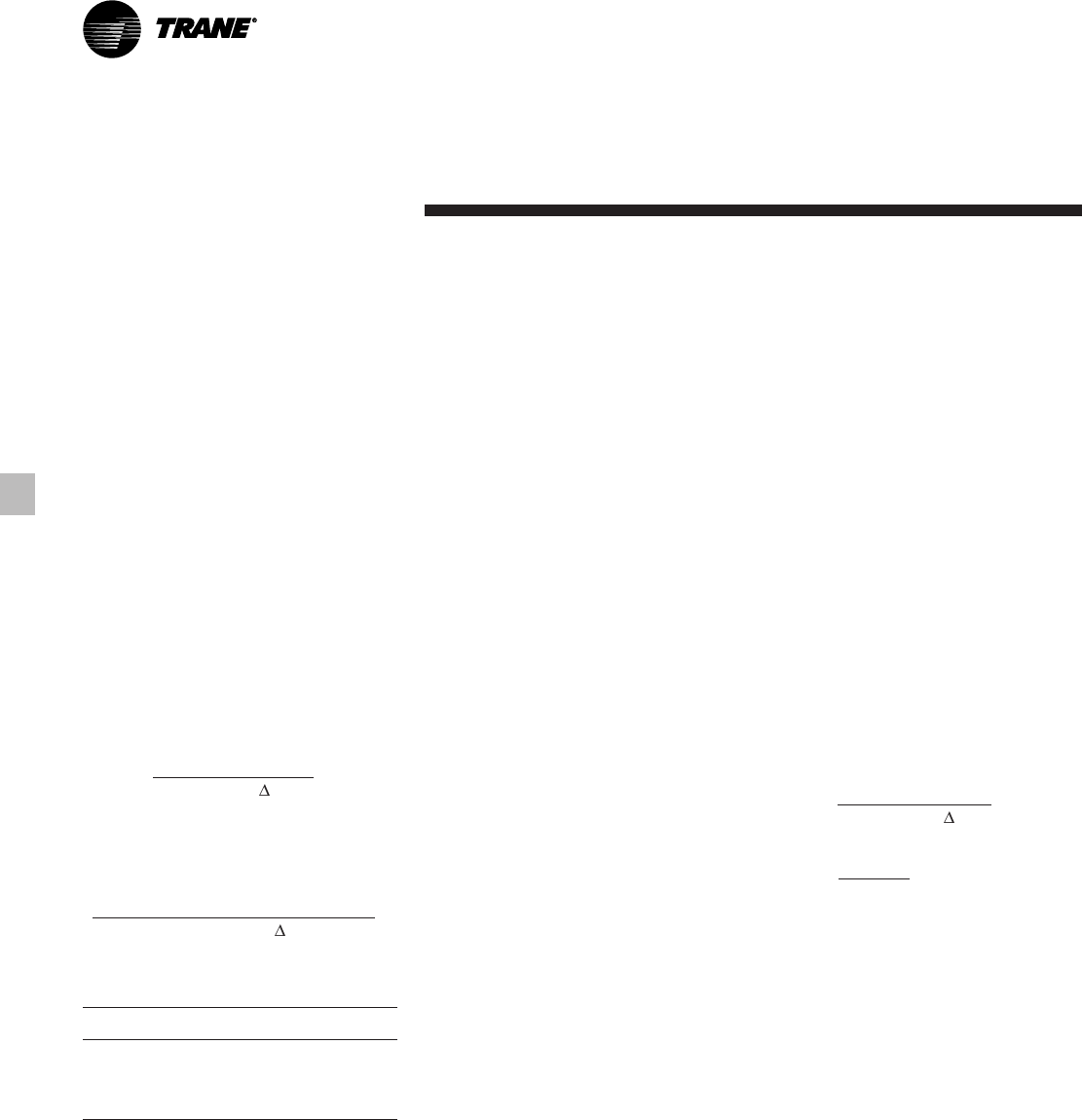
CG-PRC011-EN12
Selection
Procedures
The chiller capacity tables on the
following pages cover the most
frequently encountered leaving water
temperatures. For temperature drops
other than 10°F [5.6°C], refer to Table
SP-1, Performance Adjustment Factors,
shown below.
Additional chiller selections and
performance information can be
obtained through your local Trane sales
office.
To select a Trane water-cooled scroll
chiller, the following information is
required:
1. Design load in tons of refrigeration
2. Design chilled water temperature drop
3. Design leaving chilled water
temperature
4. Entering condenser water temperature
Evaporator flow rate (gpm) can be
determined by using the following
formula:
gpm = Tons x 24
Chilled Water T (°F)
Condenser flow rate (gpm) can be
determined by using the following
formula:
gpm =
24 x (tons + (0.285 x compressor kW)
Condenser Water T (°F)
Scroll Liquid Chiller — (CGWE) —
Selection Example:
Given:
System Load = 40 tons
Leaving Chilled Water Temperature
(LCWT) = 44°F [6.7°C]
Entering Condenser Water Temperature
(EWT) = 85°F [29.4°C]
Leaving Condenser Water Temperature
(LWT) = 95°F [35°C]
Chilled Water Temperature Drop
= 10°F [5.6°C]
1. From Table PD-2 (Performance Data), a
CGWE 40 at the given conditions will
produce 39.4 tons with a compressor
power input of 30.3 kW and a unit EER
of 15.6.
2. To determine the evaporator and
condenser water pressure drops, the
flow rates (gpm) must be determined.
Using the formula above, this unit
would require an evaporator flow rate
of 95 gpm and a condenser flow rate
of 115 gpm. (Compressor kW is found
in the same table as the capacity.) The
Evaporator Pressure Drop Curve,
Figure PD-1, indicates that 95 gpm
through a 40 ton evaporator results in
a pressure drop of 13.8 feet of water.
The Condenser Pressure Drop curve,
Chart PD-2, indicates 115 gpm through
a 40 ton condenser results in a
pressure drop of 14 feet of water.
3. The final unit selection is:
— Qty (1) CGWE 40
— Cooling Capacity = 39.4 tons
— Entering/Leaving Chilled Water
Temperatures = 54/44°F [12.2/6.7°C]
— Chilled water flow rate = 95 gpm
— Evaporator water pressure drop =
13.8 feet
— Cooling water flow = 115 gpm
— Condenser water pressure drop =
14 feet
— Compressor power input = 30.3 kW
— Unit EER = 15.6
Compressor Chiller – (CCAD) – Selection
Example:
Select the unit for the following
conditions:
A compressor chiller is required to
produce 45 tons when matched with an
air-cooled condenser. The leaving chilled
water temperature is 44°F [6.7°C]. The
evaporator temperature differential is
10°F [5.6°C]. The ambient temperature is
95°F [35°C].
1. Select the nominal unit size. The
performance data is tabulated by
leaving chilled water temperature. For
example, the standard unit capacities
at 44°F [6.7°C] leaving chilled water
temperature are found on page 21.
The system that best meets the
tonnage requirement is a CCAD 50
matched with a CAUC C50. The unit
capacity is 47.1 tons with a kW input of
56.3. The compressor chiller EER is
10.0.
2. Calculate the required chilled water
flow rate.
3. gpm = Tons x 24
Chilled Water T (°F)
From this example,
gpm =
47.1 x 24 = 113
10
4. Determine the evaporator water
pressure drop. The evaporator water
pressure drop is located on page 22.
Entering the evaporator chart at 113
gpm, the pressure drop for a CCAD 50
evaporator is 7.9 feet.
5. Unit Selection
The above procedure shows the
proper selection for this example is a
CCAD 50 with a CAUB C50 condenser
operating as follows:
— Capacity = 47.1
— Entering/leaving chilled water
temperature = 54/44°F [12.2/6.7°C]
— Chilled water flow rate = 113 gpm
— Evaporator water pressure drop =
7.9 feet
— Compressor power input = 56.3
— Unit EER = 10.0
Table SP-1 – Performance Adjustment
Factors
Fouling Water Evap. Cond.
Factor Delta T Capacity GPM kW GPM
8 0.997 1.231 1.000 0.997
0.00010 10 1.000 1.000 1.000 1.000
12 1.007 0.829 1.001 1.006
14 1.012 0.714 1.001 1.010
16 1.017 0.628 1.002 1.014
Note:
This selection procedure is for water only as the
solution.



